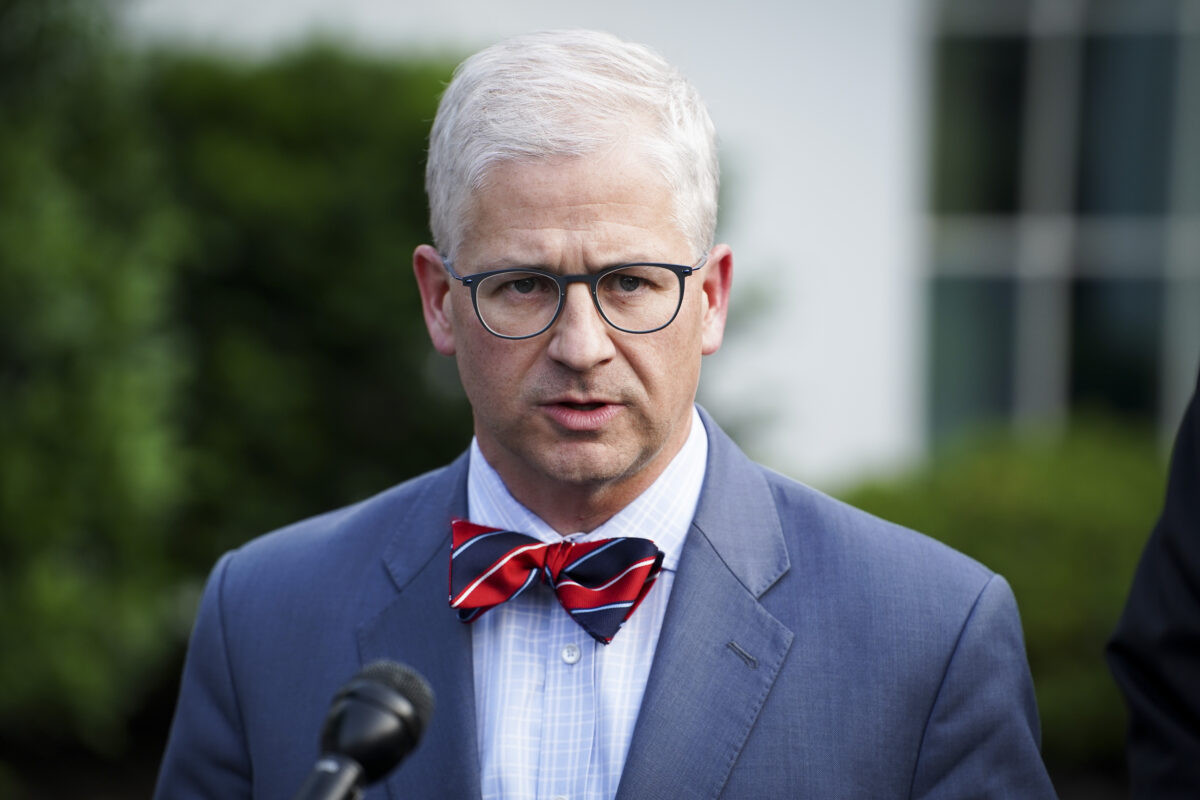

Negotiations over raising the U.S. debt limit ahead of the June 1 deadline have stalled over the issue of 2024 limits on federal discretionary spending.
White House negotiators Steve Ricchetti, counselor to the president, and Shalanda Young, director of the Office of Management and Budget, have been meeting with Rep. Garret Graves (R-La.) and Rep. Patrick McHenry (R-N.C.) to work out an agreement.
In exchange for raising the debt limit, Republicans are seeking to enact the provisions of their Limit, Save, Grow Act, which passed the House in April.
The bill aims to limit the total of 2024 federal discretionary spending to the 2022 level, limit spending increases to 1 percent annually, increase work requirements for some recipients of Medicaid and the Supplemental Nutritional Assistance Program (SNAP), claw back unspent COVID-19 funds, and loosen permitting requirements for oil and gas.
Despite reports of progress, McHenry and Graves emerged from negotiations on May 23 saying the two sides remained far apart.
“There are fundamental disagreements on spending,” Graves told reporters. “This administration thinks they can continue the same trajectory, and we’ve made it clear that that’s a non-starter.”
McHenry theorized that the White House negotiators may be hamstrung by boundaries laid down by the president.
“The talents of the people that the administration sent in the room, they know how to do this. If they have the constraints from the administration and the directive that you can’t spend less, that’s coming from the top level of the White House,” McHenry said.
“And if they’re making that as a play call, they’re completely misreading the situation in a very dangerous way,” he added.
June 1 is the first date on which the government could lack to funds to pay all of its bills on time without additional borrowing, Treasury Secretary Janet Yellen warned Congress again on May 22.
Some Republicans, including Rep. Matt Gaetz (R-Fla.), Rep. Ralph Norman (R-S.C.), and Rep. Dusty Johnson (R-S.D.), have questioned whether Yellen’s prediction is accurate, even wondering whether the White House is working from a different assumption.
However, McHenry, when asked whether he trusted the June 1 estimate, said he did. He also expressed confidence in Yellen’s word.
“I followed her service in government. She has the most varied economic experience of any living American and [has held] the most important economic positions in our government,” McHenry told reporters on May 23. “She said June 1, and she is in charge of cash management. There’s a whole bureaucracy within the Treasury. They don’t play games.
“She has enormous experience, and she’s a straight shooter. And so I don’t think there’s any wiggle room for us,” McHenry added.
![Enjoy the [Road] Show Travel Mug with Handle, 14ozEnjoy the [Road] Show Travel Mug with Handle, 14oz](https://georgemagazine.com/wp-content/uploads/2024/08/479070202831754764_2048-300x300.jpeg)



Discount Applied Successfully!
Your savings have been added to the cart.